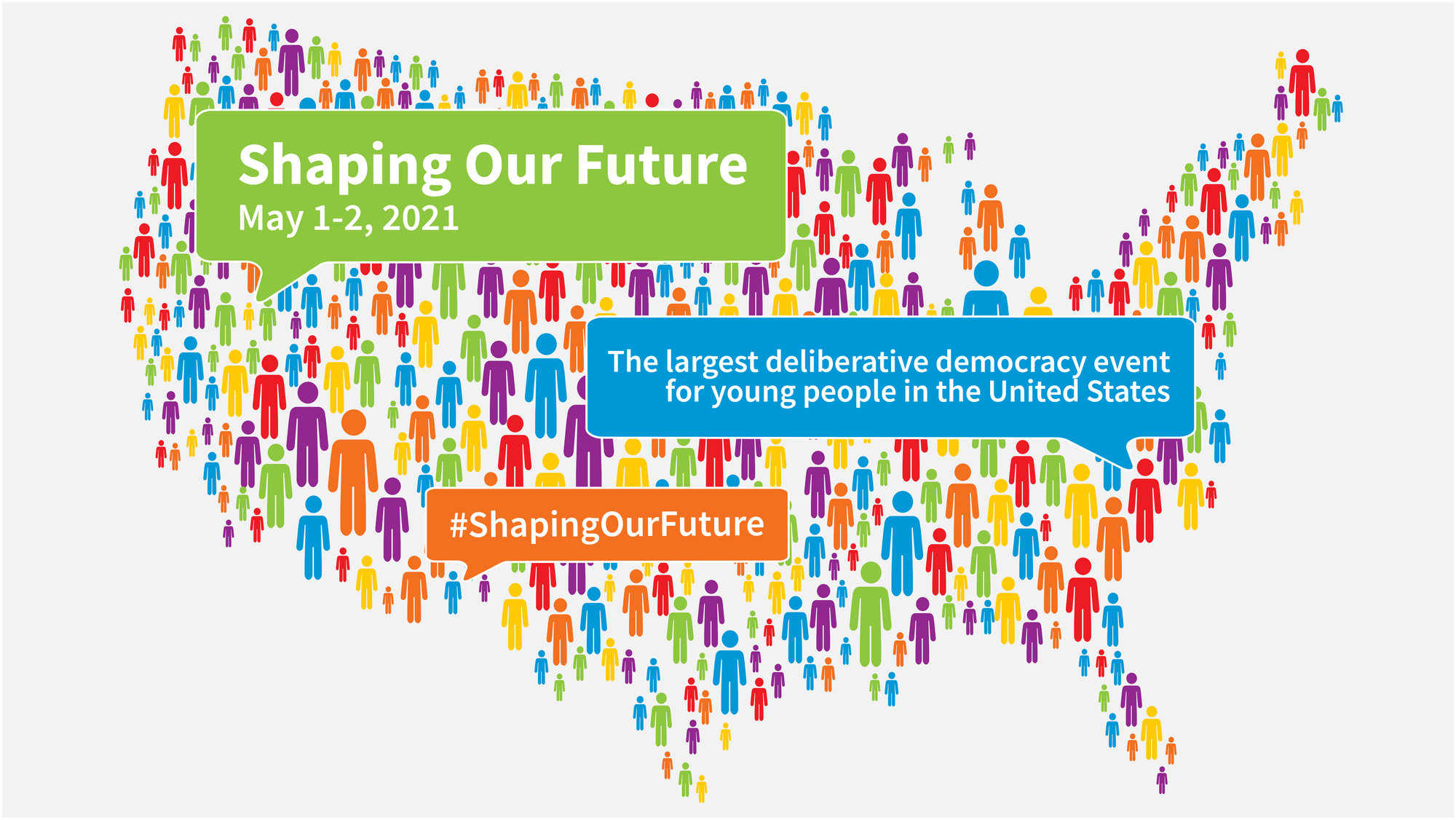
The promotional image for Shaping Our Future (Stanford University)
Seven SUNY Geneseo students participated in “Shaping Our Future,” the nation’s largest deliberative polling event for individuals ages 18 to 29. Geneseo was the only SUNY institution selected to participate alongside 34 other US universities.
Stanford University, the Berggruen Institute, and Equal Citizens hosted the two-day event earlier this month. The virtual event brought together 1,500 participants—including both students and individuals who weren’t enrolled in or didn’t complete a postsecondary program—to discuss climate change, electoral reform, national service programs, COVID-19 relief, and increasing the minimum wage. The information collected from the nationally representative sample is meant to offer insight into the policy preferences of millennials and Gen Z.
Garth Freeman, director of the Office of Student Volunteerism and Community Engagement, spearheaded Geneseo’s participation with the help of Nick Palumbo, assistant dean of students for leadership and service.
“The event seemed like a great fit for us,” Freeman says. “Having our students think about national or global issues outside of Geneseo and learning how to have constructive conversations about them with individuals from different places and backgrounds is key to supporting the college’s value of civic responsibility.”
Geneseo’s participants were selected from a group of interested applicants and included Amy Lynch ‘22, Hailey McCue ‘22, Rosa Mesbahi ‘21, Carley Salerno ‘24, Jocelyn Saquisili ‘24, Alexa Victor ‘24, and Zachary Vila ‘23.
“They got to voice their own opinions and learn from peers across the country who they might not have had the chance to connect with otherwise,” Freeman says. “That’s really beneficial.”
Related Stories
No post found!
